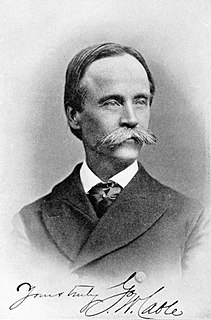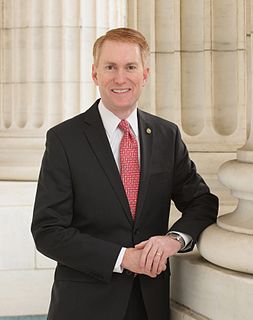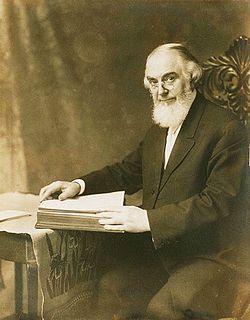A Quote by Kevin DeYoung
A catechism is simply a tool for teaching the fundamentals of the faith. Unlike a creed or confession, a catechism uses questions and answers. Many Protestant confessional traditions, like Lutherans, Presbyterians, and Reformed, have used catechisms for centuries. Initially, most catechisms were intended for children.
Related Quotes
Many Americans believe marriage is between a man and a woman, and we need to celebrate marriage as the best way to provide stability for children. For people who live by the clear teaching of many different faith traditions and people who simply believe in the sanctity of marriage, it is essential that their views are respected.
Brought up a Presbyterian, indoctrinated from the Catechism, and being naturally of an inquiring mind, I fell a ready prey to the logic of infidelity, as soon as I began to think for myself. But that which at first threatened to be the utter shipwreck of faith in God and the Bible was, under God's providence, over-ruled for good, and merely wrecked my confidence in human creed and systems of Bible misinterpretations.
Anyhow, there'll be plenty of jam in heaven, that's one comfort, he said complacently. Perhaps there will...if we want it, she said, But what makes you think so? Why, it's in the catechism, said Davy. Oh, no, there is nothing like that in the catechism, Davy. But I tell you there is, persisted Davy. It was in that question Marilla taught me last Sunday. Why should we love God? It says, Because he makes preserves, and redeems us. Preserves is just a holy way of saying jam.
The Reformed tradition at the beginning of the twenty-first century is different as a consequence of this - and different in nontrivial ways. Some may scoff at this, saying that such "developments" don't represent Reformed thought. But by what standard? Perhaps by the Westminster Confession. But this is only one Reformed confession, and it was only ever a subordinate standard.
Adam Smith's was a real universalism in intent. Laissez Faire was intended to establish a world community as well as a natural harmony of interests within each nation... But the "children of darkness" were able to make good use of his creed. A dogma which was intended to guarantee the economic freedom of the individual became the "ideology" of vast corporate structures of a later period of capitalism, used by them, and still used, to prevent a proper political control of their power.
Science corrects the old creeds, sweeps away, with every new perception, our infantile catechisms, and necessitates a faith commensurate with the grander orbits and universal laws which it discloses yet it does not surprise the moral sentiment that was older and awaited expectant these larger insights.



































